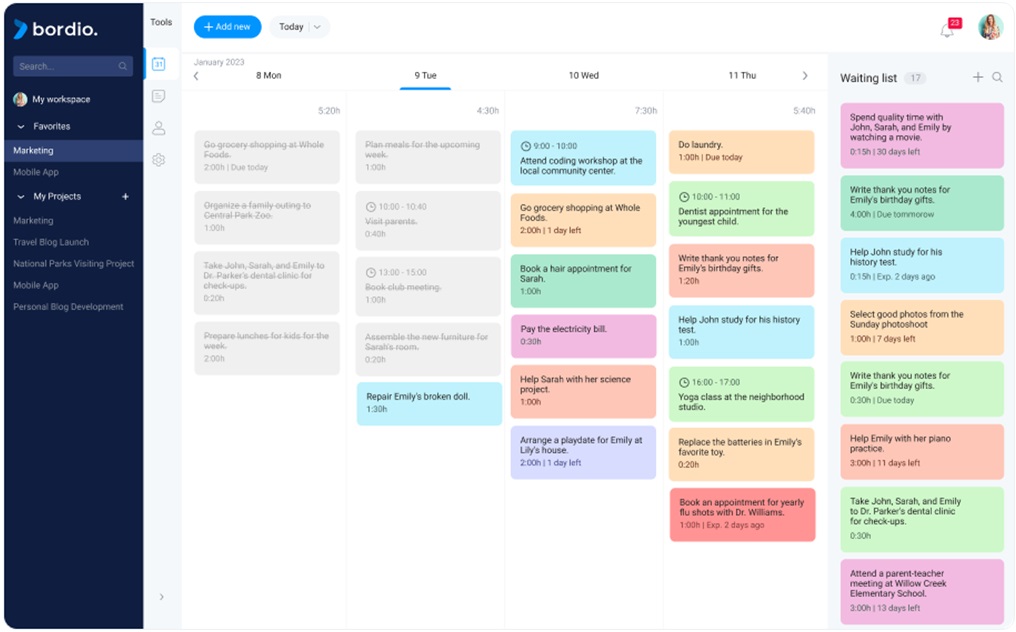The Connection Between Hobby and Productivity
Although it appears that you like your leisure time and are aware of how it might affect productivity, hold off on making assumptions. Although it may not be immediately apparent, interests and productivity are actually tightly connected.

Energy Source.
The leisure activities we partake in can be a source of vigor and inspiration, which can boost productivity. If your pastime is a creative endeavor, such as needlepoint, knitting, or ceramics, it will help you unwind and enjoy the process while also allowing you to express your creativity via the creation of your finished goods. Hobbies related to music and playing will also have a positive impact on your well-being; the process of learning and satisfaction in the process will boost your energy for future work.
Many hobbies require creativity, which can foster creative thinking helpful in solving complex problems at work. This is something that stems from the previous point about energy. The creativity involved in pursuing your favorite hobby can help you develop work-related ideas. If your hobby is either work-related or can inspire you for the work process, this will be even better. In addition, if the skills you gain from your hobby can help you in your work - peak efficiency and productivity.
Time Management.
While it is difficult to start anything new and get to work, developing time management and prioritizing skills through a hobby can boost productivity in both work and everyday life. Even if your talents could be improved, doing something you like is more straightforward. You may do a hobby at home, such as painting for 30 minutes, watching a few episodes of a TV show (perhaps in a foreign language), exercising, caring for a pet, or playing video games—activities that all demand planning and time. Hobbies can also make you go outside, which boosts your sense of responsibility. For example, going to the gym or pool, taking a walk with your dog, or taking a class in an art studio. In order to engage in such a hobby, you need to schedule time using a free task planner and notifications. Your level of responsibility and organization will increase, which will boost your productivity.

Hobbies also assist us in striking a balance between work and play, which significantly influences productivity. They provide a respite from your job, enabling you to recharge and be more effective. Simple activities like watching TV programs or caring for plants might help you unwind, relax, and improve your mood. Hobbies may aid in stress management, which enhances our general health and increases productivity. Some pastimes, like chess, music, or reading, can boost cognitive function, which raises productivity.
Competition with yourself: hobbies for yourself and others.
A sense of satisfaction and fulfillment from our hobbies may boost our drive and passion, boosting our productivity at work. The interest is, for instance, learning a new language or playing a musical instrument. In such a situation, contrasting your prior experiences with your present ones may give you the impression that you have triumphed over yourself. People are striving to be "the best" in their hobbies more and more in the age of social media and quick information exchange. Success tales highlighting new abilities and accomplishments are everywhere on social media. This puts pressure on individuals, especially young people, to be "the best" and attempt to display their abilities and triumphs publicly.

However, this strategy could have unfavorable outcomes. First off, continually trying to improve can make a pastime stressful and anxious instead of a source of enjoyment and relaxation. If all of your focus is on the competition rather than the process, it can also make your activity less enjoyable. Second, it could cause apprehension about making mistakes or doing novel things. If we are always trying to improve, we can be reluctant to take chances or make errors, which are crucial components of learning and development.
As a result, it's critical to remember that enjoying one's activity is its most crucial component. Not having to be "the best" at your activity is okay. Enjoying the process rather than the end product is crucial. You've already won if what you're doing is enjoyable. If you want to practice your pastime, do it for fun rather than for improvement or comparison to others. A hobby is a way to unwind, discover something new, have fun, enhance your well-being, and even better the world. Making the most of your pastime should be your goal rather than trying to be the greatest.